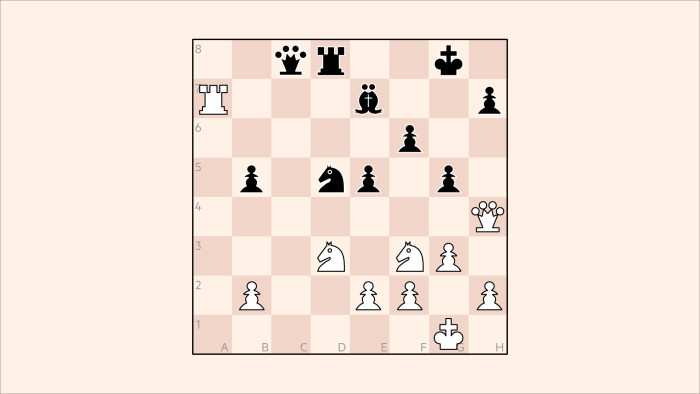Chess: England’s medal haul ends 22-year drought

Roula Khalaf, Editor of the FT, selects her favourite stories in this weekly newsletter.
For a decade in the 1980s, England was the No2 chess nation after the old USSR. There were Olympiad medals aplenty, and Nigel Short challenged for Garry Kasparov’s global crown. Then the Berlin Wall fell, and new ex-Soviet nations emerged along with India and China. Gold at the 1997 European teams seemed England’s final success.
Then, last week at the world teams in Astana, Kazakhstan, the 22-year drought ended as England won team silver behind Russian gold, while Luke McShane (gold), Gawain Jones (silver) and David Howell (bronze) won individual board medals. The City of London can be proud of McShane, who combines careers as a grandmaster and a financial trader.
The event was organised at short notice, and less than a month before the start England had no sponsor and no team to take on the well financed Russians, Chinese, Indians and Americans. Success was due to good team strategy, halving with the strong and defeating the weak, good opening prep, and resilient recoveries from mid-session difficulties.
2307

Ni Hua v Aleksandr Lenderman, China v United States, world teams, Astana 2019. This position led to a surprise defeat for China and gave England its silver opportunity. Since 1 Qh6 or Qh5 loses a knight to the pawn fork e5-e4, 1 Qe4 was expected, but instead White gave up a piece by Nxg5 and lost on material. Can you spot the hidden trap Black had prepared against 1 Qe4?
Click here for solution
Comments